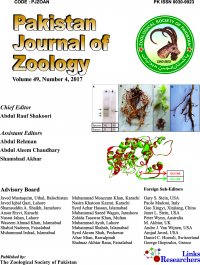ABSTRACT
Tuberculosis (TB) is airborne infectious disease and poses a great threat to public health. Precisely and timely detection of Mycobacterium tuberculosis is prerequisite for the successful treatment of TB. Aim of this study was to evaluate the prevalence of tuberculosis along with associated risk factors in Quetta Jail, Pakistan. In this cross-sectional study, 186 sputum samples were collected randomly from jail inmates. Sputum was processed for smear microscopy and culture inoculation for the detection of Mycobacterium tuberculosis infection. Moreover, the suspected samples were further investigated by polymerase chain reaction (PCR). Three samples were found positive by PCR test while other detection methods were not that sensitive to detect the tuberculosis at that stage. Two patients were reported with history of tuberculosis but were effectively treated before imprisonment. On age basis, 128/186 (68.88%) patients were of younger age (18-30 years) and 10 (5.37 %) were above 50 year. Illiteracy, unemployment (daily wages) and tobacco smoking were some of the main risk factors common in inmates. The trend of sharing blankets, towels and utensils were 158/186 (84.49%), 152/186 (81.72%) and 165/186 (88.70%), respectively which likely increase the risk of disease spread. Smear microscopy revealed that 27.92% prisoners were involved in acute and chronic inflammatory disease. PCR proved to be more sensitive compared to the sputum smears or culture based tuberculosis diagnosis.
To share on other social networks, click on any
share button. What are these?









